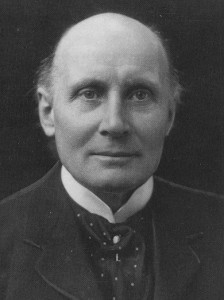I am currently reading Kevin Kelly's new book, What Technology Wants and am finding it a fascinating read. One interesting thing he talks about is how technology was here before we knew it existed. Meaning, before we had a name for technology or even recognized that there was this category of what we do or what exists out there that we now call technology it was there and coexisting with us. It was an invisible force. People sharpened flint into knives, made spears, built shelters, harnessed fire, domesticated animals and farmland, sew clothing, made fish hooks, and developed language all without having a name for this embodiment of human ideas. In the early stages of the evolution of technology it was invisible to us even though it made itself present all around us. And, every time a new technology was developed it completely changed the human environment.
Trying to define technology is hard. Two years ago I sat on an interview committee hiring a technology teacher. The principal asked if there were any questions I would like to add to the list before we began the interviews. I told him I had only one, "What is technology?" He had a strange reaction to my request but this proved to be one of the more decisive questions in our search. We interviewed three candidates that day and got three very different definitions. The teacher we hired took the broad definition and said that technology was the term used to describe how people manipulate their environment to achieve something they couldn't otherwise achieve. The other two candidates gave the narrow definition which unfortunately is also currently the common definition that technology was anything that used electricity.
If you take the narrow definition of technology then it is very easy to disregard the ecological effect introducing a new technology will bring. If you take the broad definition these considerations are unavoidable and obvious. Problem is, I think most people only consider the narrow definition and in so doing render all non-electronic technologies invisible.
One definitive characteristic of technology is it is constantly in a state of evolution and change. Rendering a technology invisible blinds us to this key attribute and locks us into a mindset about it. This is how sacred cows are born. This is how we become rigid and this is how we become irrelevant.
When a new technology is introduced into an ecology everything changes or becomes irrelevant. According to the broad definition language is a technology. Our languages are in a constant state of evolution as evident by the annual list of new words added to the dictionary each year. Language changes to adjust to the introduction of new technologies. If it didn't change how would we even be able to discuss things like wikis, friending, m-commerce, or tweeting? This is one major problem with content standards for schools. Content standards take something fluid like language and treat it like its constant. What would happen if we used content standards from a time in our distant past to drive all curriculum and assessment in our schools? And, just like language, schooling is a technology rendered invisible by the narrow definition.
Failing to see schools and all their trappings (grade systems, standardized tests, bell schedules, etc.) as a form of technology sets any technology initiative up for failure. Introduce laptops or iPads into a classroom and still run everything else the same way and one or both of two things will happen: 1) The devices will prove to be nothing but a distraction and get in the way of schooling causing people to claim the program was a flop; or 2) The technology will take over many of the purposes the school was originally designed to serve, making students view the school as irrelevant. The school whose teachers and administrators embrace the broad view will see schooling as a technology and understand that the introduction of another technology will require changes to curriculum, teaching strategies, room design, schedules, assessment, and teacher evaluation metrics.
When you start to view schooling as a technology you start to question its purpose. You start to question how it has changed the ecology it was introduced into. You start to question how it might evolve into something else. You start to wonder if or when it will become obsolete.
Technologies always have pros and cons. Early industrial technologies laid waste to our environment in exchange for cheap goods. When you start to consider school as a technology you start to see what school lays waste to and you start to see its biases.






















